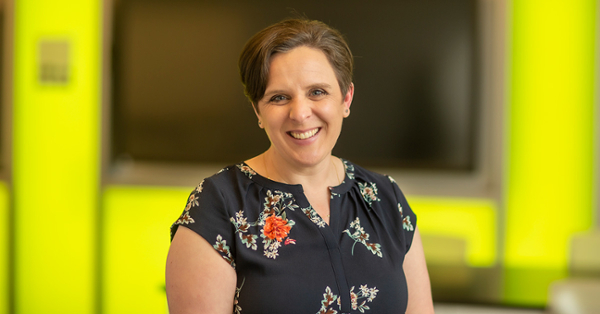NSF-funded postdoctoral fellowship will prepare engineering scholars to thrive
NSF-funded postdoctoral fellowship will prepare engineering scholars to thrive

Scholars fresh out of an engineering doctoral program have spent years developing research skills, but they’re often unprepared for other aspects of an academic career.
“When you become a professor, all of a sudden you have obligations you may not have received training for,” said Kaitlin Mallouk, Ph.D., associate professor in the Department of Experiential Engineering Education (ExEEd) in the Henry M. Rowan College of Engineering at Rowan University.
With co-principal investigators Cassandra Jamison, Ph.D., ExEEd assistant professor, and Jill Perry, Ph.D., associate professor of content area teacher education in Rowan’s College of Education, Mallouk is leading a project that aims to fill these gaps. Funded by a $1.2 million grant from the National Science Foundation, the Training Holistic Research Innovators Via Education Postdoctoral Fellowships in STEM (THRIVE-STEM) program will provide explicit training in teaching and service for ExEEd’s first three postdoctoral fellows.
“In most doctoral programs, there isn't a lot of attention on mental health or maintaining personal relationships, and that drives a lot of people—particularly women and minorities—out of the field,” Mallouk said. “Establishing a culture that values mental and social health can benefit all postdoctoral scholars, especially people who are traditionally underrepresented.”
For new instructors at all levels of education, the first years teaching can be isolating, according to Perry.
“When novice teachers encounter challenges they don't know how to handle, it can lead to catastrophizing,” Perry said. “The THRIVE program offers an opportunity to take risks in a protective environment.”
During the first year of the three-year project, Mallouk, Jamison and Perry will develop workshops and forge partnerships with faculty mentors across campus.
“This project allows us to collaborate with people who think about professional development from different angles and find synergies that can help us better support our scholars,” Jamison said.
When the postdoctoral scholars begin the fellowship in September 2025, they will benefit from holistic, intentional training for their academic careers.
“We’re focusing on what it means to be a faculty member in the full sense,” Perry said. “We want to help the scholars balance teaching and research.”
In their first year, the scholars will shadow experienced instructors and contribute to established faculty members’ research. During their second year, they will teach independently, work on their own research, and mentor graduate students. Fellowship training will also leverage programming from the National Center for Faculty Diversity and Development.
A critical part of the THRIVE-STEM initiative is establishing a community of practice in which postdoctoral scholars, established faculty members, and graduate students work toward common goals.
“Our hope is that the community of practice will continue with our faculty and graduate students beyond the tenure of the fellows, so we can continue this emphasis on thriving,” Mallouk said.
At the end of the project, the researchers hope the postdoctoral scholars will gain competency and confidence.
“I want to see our postdocs pursue whatever career fits their personal and professional goals,” Jamison said. “The successful outcome is our fellows developing the tools for a career that is stimulating and exciting for them.”